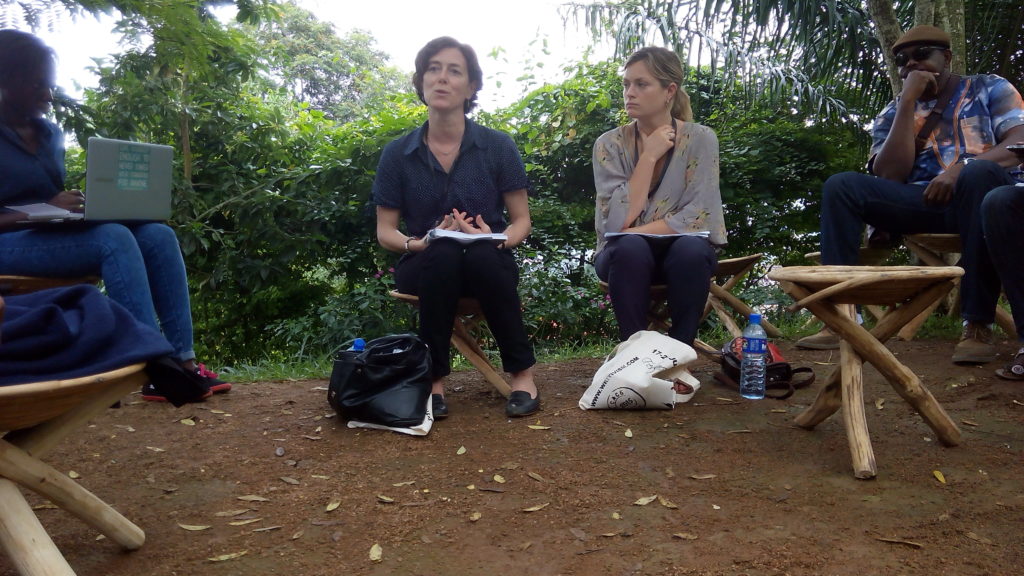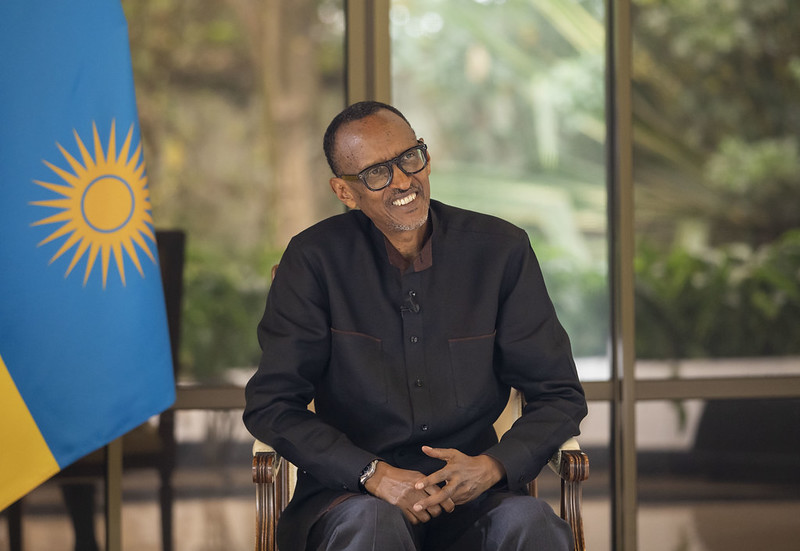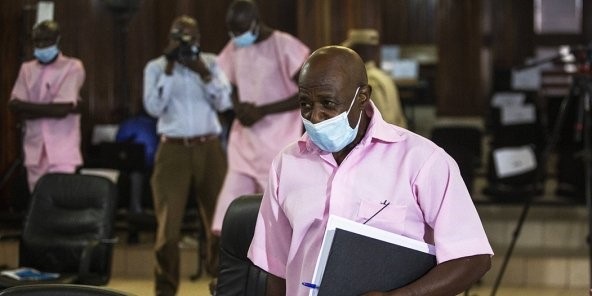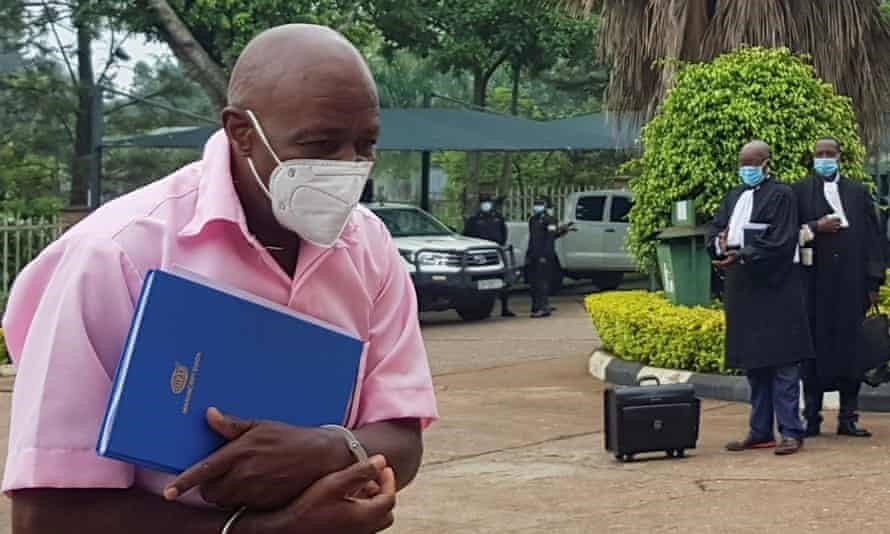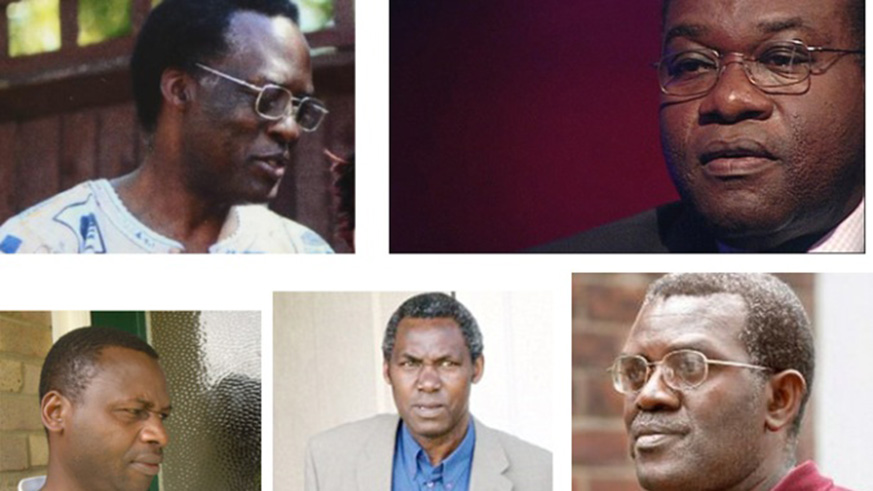International
Rusesabagina’s PDR Ihumure among pro genocidaires opposed to Netherlands extraditing genocide suspects
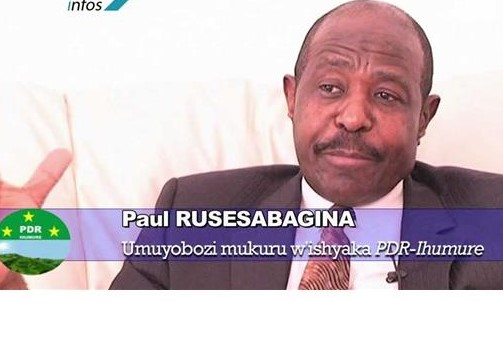
Since
the creation of PDR-Ihumure, a group founded by Paul Rusesabagina in 2006, it has
been linked with the FDLR genocidal forces and other anti-Rwanda armed groups in
the great lakes region, as well as genocide denier organisations. It is,
therefore, not unexpected to see PDR-Ihumure amongst the pro-genocidaires who
signed an open letter dated August 9, 2021 addressed to the Dutch Parliament asking
“to end the handing over of political refugees” to Rwanda, as if genocide is an
innocent, not criminal, policy.
The
pro-genocidaires’ letter was in reaction to the extradition by The Dutch
government, on July 26, of Dr. Venant Rutunga, 72, a Rwandan genocide suspect and
former director at an agriculture research institute (ISAR-Rubona) near Butare
town in southern Rwanda, following a 2018 request by Rwanda’s Prosecution
Authority.
Rutunga
became the third genocide suspect to be extradited to Rwanda from The
Netherlands, after the extradition in November 2016 of Jean Claude Iyamuremye who
was later convicted and sentenced to 25 years, and Jean Baptiste Mugimba whose
trial is still ongoing.
Ibuka-Nederland,
the Dutch-based umbrella association of survivors of the 1994 genocide against
the Tutsi, in an open letter dated August 30, addressed to the Dutch Minister
of Justice and Security, welcomed the extradition of the three genocide
suspects to face justice in Rwanda, in addition to two other genocide
perpetrators who were tried in The Netherlands, namely Yvonne Basebya,
sentenced in 2013 to six years and eight months, and Joseph Mpambara, sentenced
to life imprisonment in 2009.
While
Ibuka-Nederland urged the Dutch government to bring to book the remaining
fugitives still roaming in Dutch cities, it noted with appreciation that the
work done in The Netherlands, so far, in regard to the quest for accountability
for genocide, is consistent with the commitment made by the Dutch government in
January 2020. The latter vowed that “The
Netherlands cannot be a refuge for genocide perpetrators.”
Pro-genocidaires’
fight against accountability
The
pro-genocidaires’ letter to the Dutch parliament is reminiscent of the story of
a man who murdered both his parents, and then pleaded for mercy on the grounds
that he was an orphan.
Arguments
used by the propagandists behind the 1994 genocide to persuade ordinary
citizens to partake in killings included the lie of the Hutu victimhood at the
hands of the pro-RPF Tutsi.
Today,
27 years later, pro-genocidaires are striving to use the same propaganda on
behalf of perpetrators by adopting the role of victims as a shield from accountability.
In the
wake of the extradition of Rutunga, and also as the spectre of justice looms over
the genocidaires living in France as a result of President Emmanuel Macron’s
commitment to deal with genocide suspects – announced during his visit in
Rwanda last May 2021 – Rusesabagina’s PDR-Ihumure and fellow pro-genocidaires who
always try to shield perpetrators from responsibility by invoking moral
equivalencies, wrote to the Dutch parliament shedding crocodile tears that they
were “shocked and scandalized” by the extradition to Rwanda of the genocide
suspects.
They
illustrated their counter-argument against extraditions of genocidaires, whom
they portray as “refugees and asylum seekers”, by citing the trial of Victoire
Ingabire, as well as the disproven allegation of kidnapping “a European citizen
Paul Rusesabagina,” to cynically suggest that genocide suspects are simply “critics
or influential people who do not openly support the [Rwandan] government.” It is not the first time Rusesabagina is
involved in pro-genocidaires’ attempts to shield genocide suspects from justice.
In the case of five genocide suspects living in the
UK with impunity, in whose favour Rusesabagina testified, British journalist
Linda Melvern underlined that British Judge Evans concluded that Rusesabagina is
“a fantasist”, and declared his testimony “worthless”, after the Court determined
that, “Rusesabagina was strongly allied to the extremist Hutu faction”. This fact was validated by Rusesabagina’s verified
links with FDLR, “a group under the UN
sanctions whose leaders and members include perpetrators of the 1994 genocide
against the Tutsi in Rwanda”, according to the UN Security Council
resolution 2150 (2014).
Reading
Rusesabagina’s PDR-Ihumure and Co’s latest arguments in defense of genocidaires,
it is as if the world should stop holding genocide perpetrators to account and,
instead, focus on protecting genocide perpetrators and other criminals who have
unrepentantly associated or collaborated with the FDLR.
It
is ironical that in their letter, Rusesabagina’s PRD-Ihumure together with
pro-genocidaires co-signatories including RNC of Kayumba Nyamwasa, RRM of
Callixte Nsabimana, as well as the FDU-Inkingi founded by Ingabire Victoire
which has long had ties with the FDLR have the audacity to urge the Dutch
parliament to stop the extradition of
genocidaires in order “to restore the Dutch dignity as a civilised nation that
respects human rights and international law”. In their delusion, these pro-genocidaires think they are full of
integrity, and believe they are the moral voices on genocide.
By referring to organisations and personalities
allied to the genocidaires, like Human Right Watch, Freedom House and Filip
Reyntjens whose Hutu Power support and divisive discourse is widely known, or Jambo
Asbl, which is known for publishing articles in support of genocide
perpetrators like Felicien Kabuga and others, or interviewing FDLR commanders
to lend them credibility, the
signatories of the letter couldn’t think of a more compelling argument, in
order to persuade The Netherlands to stop extraditing genocidaires, than to
threaten Rwanda with another genocide.
In their letter, they said that the Dutch government
is “assisting in creating the very conditions that led to war and genocide in
Rwanda”, as if impunity for genocidaires is the antidote to another genocide
only them can foresee.
The Netherlands cannot waste its time on a
nonexistent problem about an issue that was intensely scrutinized by, amongst
other institutions, the British judge Anthony Evans who concluded that
“guarantees were put in place for fair trials of the alleged authors of the
genocide in their own country", Rwanda,
in addition to the actual prevailing practice and standards on fair trial in Rwanda which
have satisfied the ICTR to transfer its genocide cases to be tried in Rwanda
since 2011.


